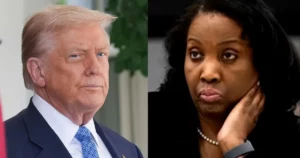
Latam Insights Encore: El Salvador’s IMF Bitcoin-Fueled Defiance Was a Fugazi
The recent controversy surrounding El Salvador’s bold decision to adopt bitcoin as an official currency has sparked heated debate among economists and policymakers. In this article, we will examine the motivations behind this unconventional move and investigate whether it was indeed “a fugazi,” or fake, as some have claimed.
For those unfamiliar with the situation, El Salvador’s government announced in June 2021 that it would be adopting bitcoin as a legal tender alongside the US dollar. This unprecedented step has raised eyebrows among international financial institutions, including the International Monetary Fund (IMF). In response to the IMF’s criticism, President Nayib Bukele took an extraordinary stance by refusing to withdraw his country from negotiations with the organization.
At its core, El Salvador’s defiance is rooted in a desire for economic independence and a willingness to challenge traditional financial orthodoxies. By embracing bitcoin, El Salvador seeks to break free from the shackles of international debt and foreign control over its monetary policy. The government has made it clear that it will not compromise on this issue, even if it means facing isolation or pressure from global institutions.
However, critics argue that this move is nothing more than a reckless attempt to boost tourism and attract crypto-investors without addressing the root causes of El Salvador’s economic woes. They point out that the country still has significant structural issues to address, including high levels of inequality and crime, as well as an unsustainable debt-to-GDP ratio.
While it is true that El Salvador faces numerous challenges, one must also consider the context in which this decision was made. The COVID-19 pandemic has disproportionately affected low-income countries like El Salvador, which saw its economy contract by over 5% in 2020. Furthermore, the country’s economic model, heavily reliant on remittances and foreign aid, is unsustainable in the long term.
In light of these factors, it becomes clear that El Salvador’s decision to adopt bitcoin was not just a knee-jerk reaction, but rather a calculated attempt to diversify its revenue streams and reduce dependence on external actors. By embracing a decentralized and transparent currency like bitcoin, El Salvador aims to create new economic opportunities for its citizens and promote financial inclusion.
While the IMF may have initially expressed reservations about this unconventional approach, it is crucial to recognize that their criticism was not entirely altruistic. As an institution deeply tied to traditional monetary policies, the IMF has consistently opposed decentralized finance (DeFi) and cryptocurrencies as alternatives to fiat currencies.
In conclusion, El Salvador’s decision to adopt bitcoin was not “a fugazi.” Rather, it represents a bold and innovative approach to economic development that seeks to empower its citizens and promote financial inclusion. While critics may see this move as reckless or ill-advised, one must acknowledge the government’s determination to forge a new path that prioritizes the needs of its people over external pressures.
This decision serves as a powerful reminder that economic policy should be guided by the principles of democracy and human rights, rather than the dictates of international institutions. As Latam Insights, we will continue to monitor this situation closely and provide in-depth analysis on the implications for the region’s economies.
Source: news.bitcoin.com


